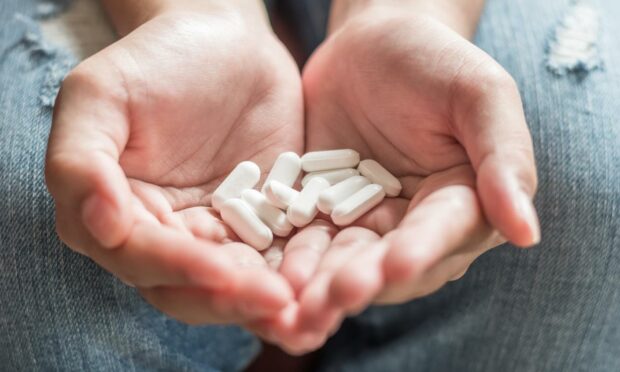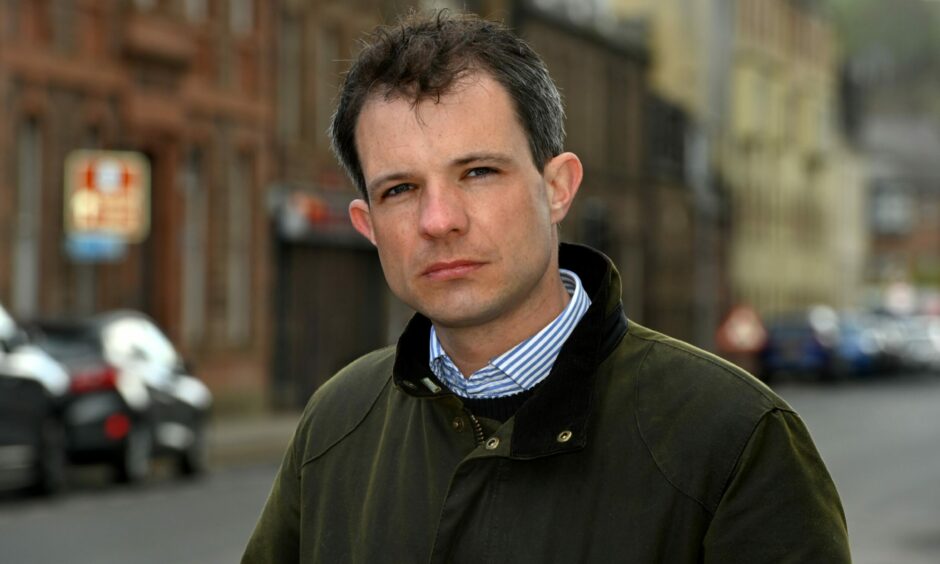The number of north-east teens deliberately overdosing on over-the-counter medication has soared, with the pandemic thought to be a key reason why.
Exclusive figures show 128 youngsters aged 13-17 were hospitalised in NHS Grampian for deliberate self-poisoning from paracetamol during 2021.
This was much higher than the 79 incidents logged in 2020, and almost three times the figure recorded in 2019.
It is thought the pressures of the Covid pandemic have contributed, at least in some capacity, to the rise.
And the “upsetting” stats have prompted a call for a wider investigation into the links between drugs, alcohol and mental health.
Over the course of the last five years, nine children 12 or younger have also been hospitalised for deliberate paracetamol overdoses.
However, for patient confidentiality reasons, NHS Grampian has been unable to provide an annual breakdown or any further details.
Overall, the number of such incidents has increased in line with the patients’ age.
However 2021 may have proven an exception to this rule, as the number of 17-year-olds hospitalised was lower than the other age brackets.
The statistics, obtained by the Scottish Conservatives under freedom of information legislation, also showed an increase in the number of deliberate overdoses using illicit substances.
A total of 186 youngsters were hospitalised for this between January and September 2021.
There were more in this nine-month period than the 129 logged over the entirety of 2020, and 110 in 2019.
‘It may take years to understand the full toll of Covid-19’
West Aberdeenshire and Kincardine MP, Andrew Bowie, says the impact on youngsters’ future prospects during the pandemic likely played a role.
“One of the unintended consequences of lockdowns was keeping thousands of teenagers at home without access to the outer life that is absolutely crucial to a young person’s early development,” he said.
“Finding out who they are and what they have to look forward to, seizing the opportunity to learn among their peers — all were heavily impacted at a stroke.
“And in a region with a significant rural population, like the north-east, the effect of isolation on mental and physical health can only have been amplified.”
The likes of Aberdeen City Council have increased the emphasis they place on mental wellbeing – working with young people and their parents as necessary.
And Mr Bowie feels more research is needed to understand exactly what may be needed in the years to come, as the world recovers from the coronavirus.
He added: “While we are acutely aware of the virus case numbers and the tragic death toll since March 2020, it may take years to fully understand the toll Covid-19 has had on our mental health as a country.
“I would welcome a broader study on this issue – not just in terms of drugs but alcohol and general mental health – and what our NHS, governments and council services will need to strive to achieve in the months and years ahead.”
Whatever you want to talk about, we’re here to listen. 💚
Our free helpline is available round the clock on 116 123. Or contact us by email: jo@samaritans.org pic.twitter.com/5ClIE2pRup
— Samaritans Scotland (@Sams_Scotland) March 5, 2022

